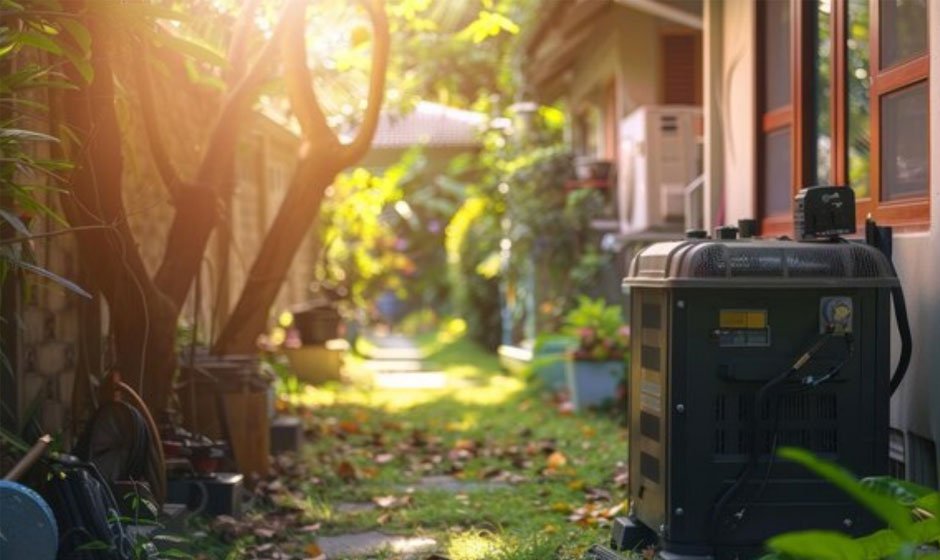As a homeowner, a generator can be a lifesaver during power outages, keeping your home functional and comfortable when the grid fails.
Generac generators are popular choices for many homeowners due to their reliability and efficiency. However, to ensure it operates efficiently, regular maintenance is recommended. Skipping maintenance can lead to unexpected breakdowns, especially when you need your generator the most.
By regularly monitoring your generator’s performance, addressing any signs of wear and tear, and following a structured maintenance schedule, you can significantly extend its lifespan and ensure that it operates smoothly when you need it most. To help you keep your generator in top shape, here are five essential maintenance tips every homeowner should know.
Regularly Inspect and Test Your Generator
Keeping the generator at its best requires regular inspections. Check for worn-out areas: rust on the frame or corrosion on terminals. For instance, if there is rust at the bottom of the fuel tank, it may be a pointer to an impending leak. Operating your generator under applied load-for example, hooking it up to a small appliance-for 20 – 30 minutes every month keeps the battery charged and helps you find any possible problems. If it is difficult to start or generate power during the test, that would be a sure sign that some maintenance is in order.
Change the Oil and Filters
Just like a car, generators need regular oil changes to function properly and safely. If your generator runs for about 100 hours, it’s time to change the oil. For instance, after a big storm when you use your generator for several days, it’s a good idea to change the oil to ensure the engine runs smoothly next time. Always refer to the manufacturer’s manual for specific oil types and change intervals. A homeowner in New Brunswick learned this the hard way when neglecting oil changes led to engine failure during a power outage.
Maintain the Fuel System
Fuel quality can decline over time, particularly in gas generators. For example, if you store gasoline in your generator for more than three months, it may lose its effectiveness, leading to starting issues. Using a fuel stabilizer can help keep fuel fresh for longer. A practical example is a family in Jersey City that uses a stabilizer every spring to prepare their generator for summer storms. For diesel generators, checking the fuel filter every six months can prevent clogging and ensure a smooth flow of fuel.
Inspect and Clean the Battery
A generator’s battery is essential for starting the engine, so regular maintenance is vital. Check the terminals for corrosion, which appears as a white, powdery substance. If you see corrosion, you can clean it using a mixture of baking soda and water. Ensure connections are tight; loose connections can cause starting issues. For instance, a homeowner in Cherry Hill found that a loose battery connection prevented their generator from starting during a power outage, highlighting the importance of regular checks.
Keep the Generator Clean and Covered
Dust and debris can affect the generator’s performance. Regular cleaning is crucial; for example, wipe down the exterior after storms or windy days. If your generator is exposed to the elements, using a weatherproof cover can protect it from rain, snow, and UV damage. A homeowner in Morris County noticed significant performance improvement after they started covering their generator during non-use, preventing dirt buildup and keeping it in top condition.
Proper maintenance of your generator is essential for its reliability and longevity. By following these five tips, regular inspections, oil changes, fuel system care, battery maintenance, and cleanliness, you can ensure that your generator is ready to perform when you need it most. Investing a little time in maintenance can make a significant difference in the effectiveness of your backup power source.





